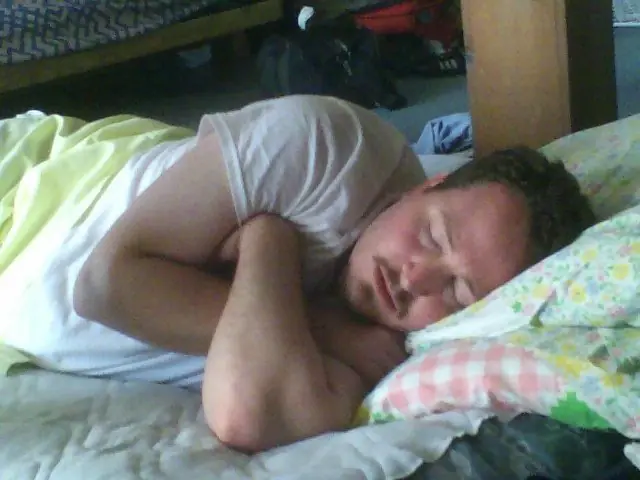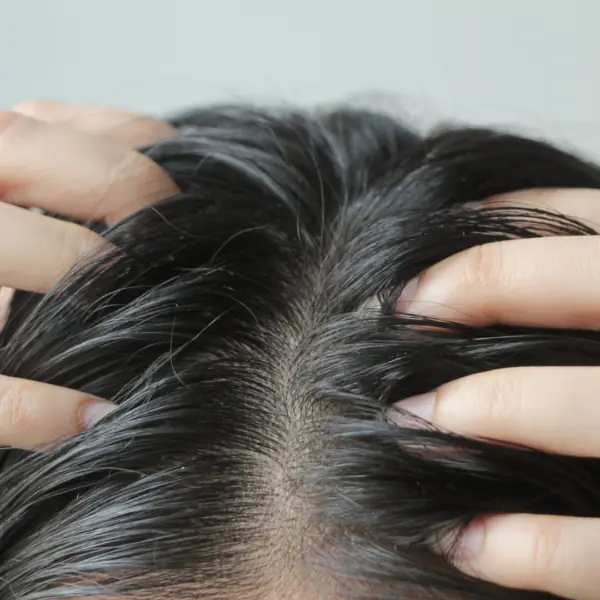
What Is Sleep Talking?
What Is Sleep Talking?
Sleep talking can happen during any stage of sleep, from light to deep.
Roughly half of all people will talk in their sleep at least once in their life. For many, it's a one-time occurrence, but for others, it can happen more frequently.
Why It Happens
The exact reason for sleep talking isn't fully understood, but it is often linked to a few key factors:
-
Genetics: If your parents or grandparents were sleep talkers, you might be too. It is often a hereditary trait.
-
Stress and Anxiety: Your subconscious mind can be very active when you're under stress.
Mental overload, emotional pressure, or even excitement can cause you to talk in your sleep. -
Poor Sleep Habits: An irregular sleep schedule or a lack of deep, restful sleep can disrupt your sleep cycle and trigger episodes of sleep talking.
-
Stimulants or Substances: Consuming caffeine, alcohol, or certain medications late in the day can interfere with your body's ability to relax and enter a deep sleep, which can lead to vocal activity at night.
When to Be Concerned
Sleep talking is usually harmless and not a sign of a serious medical condition. However, you should consult a sleep specialist or a doctor if your sleep talking is:
-
Frequent and disruptive.
-
Accompanied by other sleep disorders like sleepwalking or night terrors.
-
Paired with daytime symptoms like fatigue despite a full night's sleep.
Tips for a More Restful Sleep
Making a few simple changes to your routine can help promote deeper, more restorative sleep.
-
Stick to a Schedule: Go to bed and wake up at the same time every day, even on weekends.
-
Create a Wind-Down Ritual: Avoid screens for at least an hour before bed.
Try reading, meditating, or gentle stretching. -
Watch What You Consume: Cut back on caffeine, alcohol, and sugar late in the day, as these can interfere with your sleep cycle.
-
Make Your Bedroom a Sanctuary: Your bedroom should be a cool, dark, and quiet space. Consider using blackout curtains or a white noise machine.
By taking steps to improve your sleep hygiene, you can help reduce the frequency of sleep talking and get the quality rest you need.
News in the same category


Mix Bananas, Honey and Water: Cough and Bronchitis Will Disappear

Forget 10,000 steps: Scientists prove 7000 steps gives you ‘almost identical’ life-saving benefits

Farting Too Much at Night: Here’s What It Might Mean

What Foamy Urine Might Be Trying to Tell You

What Sleeping with Your Arms Crossed Really Says About You

How to Kill the Bacteria Causing Heartburn and Bloating

The Hidden Warning Signs of Iron Deficiency—and How to Fix It

Beat a Sinus Infection Fast with These Natural Remedies

What Happens To Your Blood Pressure When You Eat Bananas

Why Your Hands Go Numb While You Sleep

Reason For Spots On Hands

Here Is What Your Poop Says About Your Health

3 powerful vegetables everyone overlooks (but shouldn’t!)

4 hidden signs of iodine deficiency in your skin, hair & nails

The Most Effective Natural Way to Remove Gallstones

Causes of Early Graying You Never Suspected

That Persistent Scalp Itch

That Random Stabbing Pain in Your Chest Has Finally Been Explained
News Post

Keep a garlic bulb by your bedside—the ‘golden’ benefits will make anyone want to try it

Throwing away coffee grounds is like throwing away money—these uses for coffee grounds are things every household needs

Soak yellowed pillow inserts in this, and no matter how dirty they are, they’ll come out bright and clean like new

Your unexplained fatigue and bloating could be intestinal parasites feeding off you right now

Mix Bananas, Honey and Water: Cough and Bronchitis Will Disappear

Forget 10,000 steps: Scientists prove 7000 steps gives you ‘almost identical’ life-saving benefits

Dandelion roots are the most important part of the plant

Why Is It Not Recommended To Hang Out The Clothes Outside

9 Things About Bledo Blanco (Amaranthus albus)

Farting Too Much at Night: Here’s What It Might Mean

Sleeping Position With Your Partner

What Foamy Urine Might Be Trying to Tell You

What Sleeping with Your Arms Crossed Really Says About You

5 Homemade Turmeric Face Washes for all Skin Type

3-Step Okra Skin Care: Get Rid of Wrinkles, Large Pores & Dark Spots

13 Powerful Leaves That Help Manage Diabetes Naturally

Seasoning powder and monosodium glutamate, which is the most harmful?

CCF Drink For Glowing Skin

